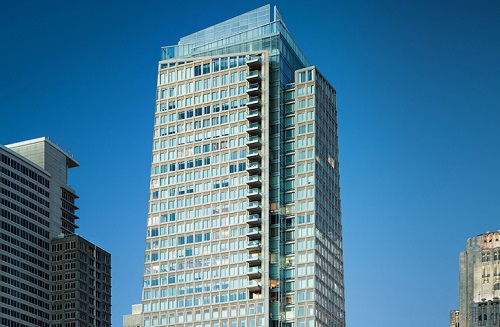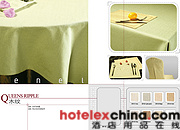
The sale of the St. Regis San Francisco is just the start of Marriott International’s plan to sell off Starwood Hotels & Resorts Worldwide-owned properties over the next one to two years.
Marriott has maintained an asset-light model for years, so its acquisition of Starwood—and the brand-owned properties that came with it—has created another revenue opportunity for the company. Industry analysts said Marriott has a goal of $1.5 billion to $2 billion in asset sales from the Starwood-owned portfolio, potentially attainable as soon as the end of 2017.
Priorities other than high valuation
It’s likely Marriott will sell the Starwood-owned assets at a faster (though still careful) pace than Starwood had prior to the closing of the brand acquisition in September, said Ryan Meliker, managing director and senior REIT analyst at Canaccord Genuity.
“Marriott has always said the economies they get on the asset sales are not defined by the price of the sale but the management contract,” he said. “They can make up the discount through the fee stream over time. That’s something that can potentially expedite asset sales when owners know they’re buying at a discount.”
Mike Bellisario, VP at Robert W. Baird Company, felt similarly.
“I think Marriott is totally fine selling those at 90 to 95 cents on the dollar relative to how Starwood sold them,” he said.
These are by no means fire-sale prices, he said, as the company is diligent about to whom it markets the assets, but Marriott is more willing to move the asset. He said he doesn’t get the sense that Marriott will hold out for the last dollar or two.
Marriott sold the St. Regis for $175 million, and Bellisario said that property is probably its second highest cost-per-key property. Some people might be disappointed by the final sale price, he said, but they also likely don’t know the length of the management agreement, which is probably more important to Marriott for properties like this.
Properties for sale
Marriott will likely focus on selling the U.S.-based Starwood-owned brands, Meliker said, because there are higher dollar amounts tied to those. The St. Regis New York, the Tremont Chicago Hotel at Magnificent Mile and the Westin Maui Resort & Spa Ka’anapali are all good candidates for 2017 transactions. As for what might go first, he said it comes down to who the buyer is.
“If it’s a foreign buyer, it could be under contract tomorrow but not close for nine months,” he said.
Because there are more international properties, Bellisario said he believes Marriott will focus on selling those over domestic assets.
“I think they’re going to target the highest-value hotels,” he said. “They’re easier to move first to get them to that $1.5 billion target. The heavier lifting can be done after that, on top of the $1.5 billion. They want the milestone, and you can do that by picking off a couple hotels easily.”
Possible buyers
There are a number of possible buyer classes, Bellisario said. Public real estate investment trusts might be dabbling a little, but they’re generally out of the acquisition market, he said. Private equity buyers need a little more yield and leverage. However, some have gone after assets in Europe and other international markets that haven’t recovered like the U.S. has, he said, so that might make Canada interesting.
The most likely buyers of domestic Starwood-owned assets are foreign investment funds, sovereign funds and high net-worth individuals, he said.
International buyers have an appetite for U.S. assets, said Wes Golladay, VP and equity research analyst at RBC Capital Markets, so they would likely go for the bigger assets in the portfolio. He cited as examples sales by Pebblebrook Hospitality Trust and RLJ Lodging Trust to international buyers. But, while REITs are definitely not in the market right now, he said private equity buyers might look for smaller assets or strategic purchases.
An ironic turn in these asset sales would be if Anbang Insurance Group returns this time as a potential buyer of Starwood-owned hotels, he said. He said he has no idea if Anbang would make a bid, but it does fit the bill as a company that likes hotels and would pay more than a fair price for them.
“They already have a company that owns very nice hotels with Strategic (Hotels),” he said. “I would assume they have the capital, but I don’t know for sure.”
Anbang is a possibility, Meliker said, but it’s only one of many Asian investors. China Life recently invested $2 billion in Starwood Capital Group, he said.
Anbang has roughly $1 billion in capital that it didn’t spend after a property fell through in its deal to acquire Strategic Hotels. But, Bellisario said, those dollars don’t necessarily have to go to hotels. Still, it’s possible the company will want to purchase the assets it would have acquired had Starwood accepted its bid, he said.










Service Hotline
Work Time:Mon-Fri 9:00-18:00
UTC+8

Sinoexpo Digital Platform
Copyright 2006-2025 Shanghai Sinoexpo Informa Markets International Exhibition Co., Ltd. All rights reserved
沪ICP备05034851号-77
 沪公网安备 31010402000543号
沪公网安备 31010402000543号